With the Punjab Police motivating villagers to play a crucial role to trace and help identify drug traffickers, women-led groups in the rural areas have joined hands to ensure community protection from the alarming rise in drug abuse among the youth.
Armed with lathis and torches, the women volunteers became active as dusk falls by resorting to the age-old practice of “thikri pehra” (community policing) to catch drug peddlers.
By erecting multiple checkpoints and roadblocks at the village entry points, they stop all vehicles and search them thoroughly by using torches. On being satisfied about the person’s identity, he or she is allowed to enter the village.
On suspicion, they use mobile phones to communicate and on catching a drug peddler, they make a video and put it on social media before calling the police.
This concept of community policing is gaining ground in many districts especially in the border districts of Gurdaspur, Pathankot, Tarn Taran, Ferozepur and Amritsar districts. It is invoked under the provisions of a British-era law -- The Punjab Small Town Patrol Act of 1918 that empowers villagers to guard themselves.
Often videos of youngsters taking drugs went viral and the ‘thikri pehra’ volunteers tracked down the peddler and handed them over to the police.
“All able-bodied men and women inhabitants perform patrol duty in all villages day and night. In the night when the womenfolk are free from routine household chores, they prefer to perform community policing for the future of the youth,” villager Bhagwant Kaur told IANS.
She said on suspicion they immediately informed the local police station. “And if someone flees in a vehicle, we immediately inform villagers positioned at the next checkpoint,” she added.
Kaur along with a group of 8-10 women mans a roadblock on the outskirts of a village near Nakodar in Jalandhar district.
According to her, chitta (synthetic drug) is the most prevalent in the area.
“Thikri pehra” is to provide security and safety to the residents at the local level and relieve the police from the ever increasing burden," ,said another villager Rani Balbir. “It has been proving its relevance in present times, be it the war against Covid-19 or drugs,” she added.
According to villagers, a number of teenagers become drug peddlers for a quick buck. They have been peddling drugs in small quantities which helps them get bail even after the seizure of drugs.
A first-year college student Pavitar Singh told IANS, “Students make between Rs 25,000 and Rs 35,000 a month by trafficking ‘chitta’. For them, establishing a network is easy, as long as they procure quality drugs and, of course, their age is on their side to avoid suspicion. Even locals deployed at the thikri pehras know them personally.”
Several households have lost their breadwinners to the drugs scourge. Maqboolpura, a village on the outskirts of Amritsar town, is known as the “village of widows” as a majority of drug abuse victims hail from there.
But seizure of drugs by the Border Security Force (BSF) and Punjab Police shows how the state is becoming a base for a multi-million dollar narcotics trade.
Police records show 19,093 drug smugglers, including 2,778 big fish, were arrested in the past 14 months.
Inspector General of Police Sukhchain Singh Gill in his media briefing on September 4 said 14,179 first information reports (FIRs) of which 1,717 related to commercial quantity were registered.
He said the police have recovered 1,400 kg heroin after carrying out cordon and search operations in drug-affected areas. Additionally, 147.5 kg heroin was recovered by the Punjab Police from the seaports of Gujarat and Maharashtra, taking the total effective recovery of heroin to 1,548.27 kg in just 14 months.
Apart from the big-haul of heroin, Gill said police have also recovered 871.82 kg opium, 446.30 quintals of poppy husk, and 90.59 lakhs tablets, capsules, injections and vials of pharma opioids from across the state. The police have also recovered Rs 13.96 crore drug money.
Also the BSF, responsible for safeguarding the 553-km-long tough and challenging Indo-Pakistan International Border, has been foiling the nefarious designs of smugglers by seizing illicit drugs, mostly heroin airdropped by Pakistani drones.
In 2022, the BSF captured 22 drones and seized 317 kg heroin in Punjab.
Aghast over the spike in drug abuse, Punjab Governor Banwarilal Purohit has slammed Chief Minister Bhagwant Mann for “breaking down the law and order situation in Punjab” and asked him to “immediately send him a report on the action taken by him against the rampant drug trade”.
In a letter to Mann on August 25, Purohit said he had received reports from various agencies regarding the easy availability and abuse of drugs in Punjab.
“It is common knowledge that they are available in chemist shops. A new trend is observed that they are being sold in government-controlled liquor vends. The Narcotics Control Bureau recently sealed 66 liquor vends in Ludhiana which were selling drugs,” he said.
Quoting a recent report of the Parliamentary Standing Committee, the Governor said one in five people in Punjab is exposed or addicted to drugs.
“These facts point out to the breaking down of the law and order system in Punjab so much so that now villagers have started protesting on streets in large numbers and decided to set up their own village defence committees to protect themselves from drugs,” he added.
Punjab Director General of Police (DGP) Gaurav Yadav last month convened a meeting with 44 village-level defence committees (VLDCs) in Pathankot to devise a strategy to dismantle the drug supply network and curb drug smuggling.
VLDCs, which act as the 'eyes and ears' of the security forces, play a vital role in getting real-time information leading to disruption of the drug networks.
The 44 VLDCs of Pathankot have taken a resolute stand against drug-related issues and declared their villages “drug-free zones”.
Representatives of VLDCs have vowed to work with the police to eradicate the drug menace from their communities.
As a symbol of empowerment and recognition, DGP Yadav has bestowed VLDCs with new identification cards and unique jackets to facilitate their identification and collaboration with law enforcement.

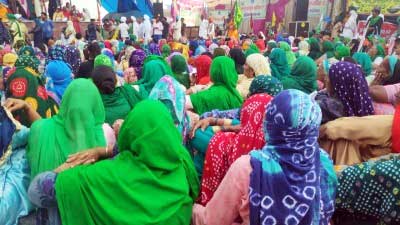
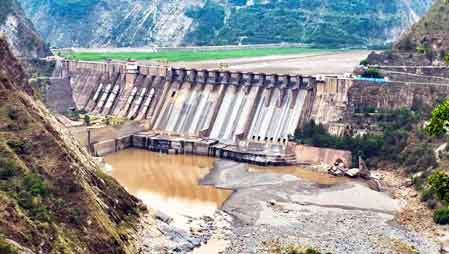
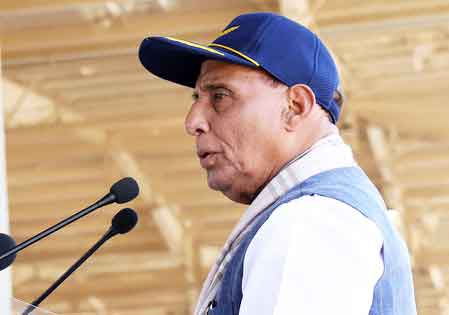
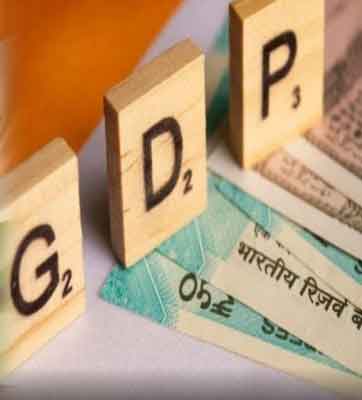
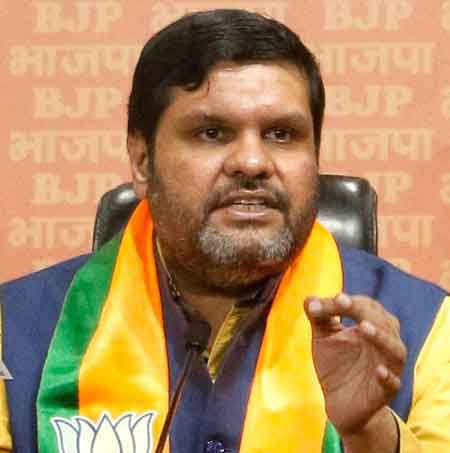
Tripura to have Nicco park-model modern recreational park at Jirania: Tourism Minister
The state tourism minister Sushanta Chowdhury on Friday chaired a meeting at Jirania in West Tripura district and said that responding to the proposal of the Tripura government, the Centre has approved establishment of Nicco park-model modern recreational park at Sachindranagar in Jirania subdivision.
PM Modi emphasising on development of North East region: Union MoS Dr. L. Murugan
The Union Minister of State for Information and Broadcasting and parliamentary Affairs Dr. L. Murugan on Friday claimed that the Northeastern states including the states of Tripura is moving in parallel with the rest of the country in terms of development.
State govt integrates AI tools to modernize administration
In a decisive move to modernize public administration, the Tripura government has begun integrating Artificial Intelligence (AI) into its governance framework, aiming to enhance transparency, efficiency, and citizen service delivery.
MoS Dr. L Murugan leads Tiranga Yatra in Belonia, says Operation Sindoor a success
Union Minister of State for Information & Broadcasting and Parliamentary Affairs, Dr. L Murugan, Friday led a Tiranga Yatra in Belonia under South District of Tripura to mark the success of Operation Sindoor and express solidarity with Prime Minister Narendra Modi and the Indian Armed Forces.
India in no hurry to review suspension of Indus Waters Treaty: MoJS
The Ministry of Jal Shakti (MoJS) is in no hurry to dilute the decision to keep the Indus Waters Treaty (IWT) in abeyance, a stand taken by the Centre as part of tough measures announced against Pakistan after the Pahalgam attack, a top official said on Friday.
Pak plans to give Rs 14 crore to Masood Azhar from public funds: Rajnath Singh
Addressing troops at a military base in Gujarat's Bhuj, Rajnath Singh claimed that the Pakistan government intended to give Rs 14 crore to Masood Azhar, the UN-designated terrorist and chief of Jaish-e-Mohammed (JeM).
India's GDP growth in Q4 of 2024-25 expected at 6.8-7 per cent: Report
The Indian economy is expected to grow at 6.8-7 per cent in the fourth quarter of the financial year 2024-25, driven by the agriculture sector, according to a Bank of Baroda report released on Friday.
BJP, Congress welcome govt's move to send multi-party MP delegations abroad on Pahalgam attack
The Narendra Modi-led government's planned diplomatic initiative of sending multi-party MP delegations to major world capitals to expose Pakistan’s role in the recent Pahalgam terror attack and to rally global support against cross-border terrorism has won support from both the ruling BJP and the opposition Congress.